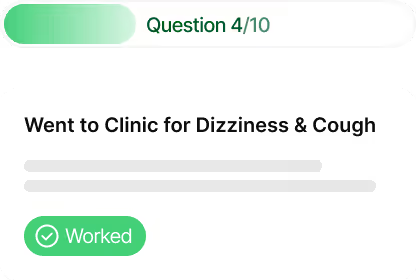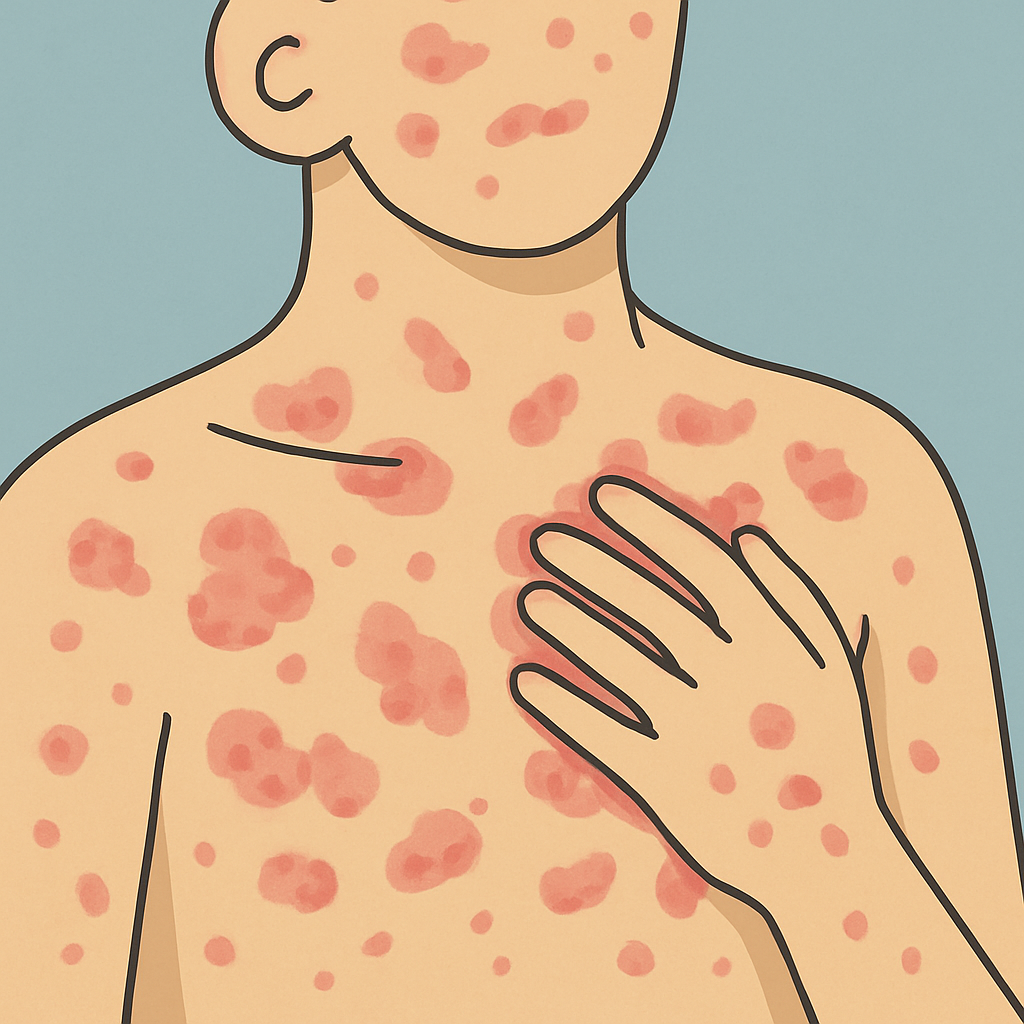Your personal
AI assistant for
Chronic Urticaria

.avif)
.avif)
.avif)
.avif)



.avif)


.avif)
.avif)
.avif)
.avif)



.avif)


.avif)
.avif)
.avif)
.avif)



.avif)


Our platform gives you a space to track your symptoms, prepare for medical visits, and learn from insights shared by others living with CSU. Whether you’re identifying triggers, exploring treatment options, or looking for questions to ask your doctor, mama health helps you stay organized and in control of your care.
You’re not alone in this. mama health is built to walk with you through the ups and downs of CSU, helping you understand your patterns, manage flare-ups with confidence, and advocate for the care you deserve.
What is chronic urticaria?
Chronic spontaneous urticaria (CSU) is a skin condition characterized by the spontaneous appearance of hives, which are red, itchy welts or swellings on the skin, without an identifiable trigger. The term "chronic" indicates that the condition persists for six weeks or longer, and "spontaneous" means that the hives occur without a known cause, unlike other types of urticaria that may be triggered by specific factors like foods, medications, or physical stimuli.
In CSU, the hives can appear anywhere on the body and may come and go unpredictably. They often cause significant discomfort due to itching, and in some cases, they may be accompanied by angioedema, which is a deeper swelling of the skin, often affecting areas like the eyelids, lips, or throat.
The exact cause of CSU is not fully understood, but it is believed to involve an autoimmune component where the body's immune system mistakenly attacks healthy tissues, leading to the release of histamine and other chemicals that cause the hives.


Unlike other forms of urticaria, which may be triggered by specific factors such as foods or environmental allergens, CSU occurs without any identifiable cause, making it challenging to manage.
Common symptoms include:
- Red, itchy hives that can appear anywhere on the body
- Swelling (angioedema), particularly around the eyes, lips, and throat
- Itching that can range from mild to severe
- Welts or welts that change size, shape, and location over a short period, typically within a day
How can mama health help?




Developed and supervised by medical experts
What patients are saying
There are so many testimonies and so many people like me.
I hope this platform grows so we can help so many people who feel alone with a disease.
In the end we are many and all together we can fight.❤️"
There are so many testimonies and so many people like me.
I hope this platform grows so we can help so many people who feel alone with a disease.
In the end we are many and all together we can fight.❤️"
Frequently asked questions
The healthcare system is missing a crucial piece—real patient experiences. We bring those voices back into the system, making healthcare truly patient-centric. By connecting data from patients, doctors, hospitals, and research, we help unlock new insights, improve treatments, and turn today’s incurable diseases into tomorrow’s breakthroughs.
- See what works – Learn from others with the same condition and avoid trial-and-error treatments.
- Get a clear health picture – Track your journey, compare with others, and gain deeper understanding.
- Be part of something bigger – Your experience helps improve healthcare and accelerate research.
We use the information shared on mama health to improve treatments and services for all patients. However, we ensure that no one—neither other patients, scientists, nor healthcare companies—can identify you personally.
To request the deletion of your data, simply send an email to support@mamahealth.com.

.avif)

.avif)










.avif)
